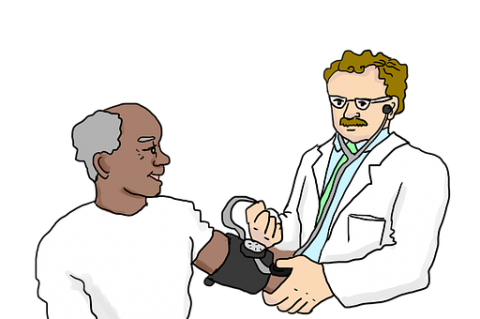
The Trump administration just put forward a proposal to reduce out-of-pocket drug costs for Medicare beneficiaries -- and thus boost access to life-saving and life-enhancing medicines. This proposal deserves support from Democrats and Republicans alike.
The proposal impacts Medicare's prescription drug benefit, known as Part D. Though subsidized and regulated by the federal government, beneficiaries purchase Part D drug plans from competing private insurers.
Nearly 45 million seniors depend on Part D for coverage. Each year, these seniors choose from a myriad of plans with varying premiums and cost-sharing requirements, like copays and coinsurance.
Insurers enlist the help of "pharmacy benefit managers," or PBMs, to administer these plans. PBMs use their leverage to negotiate substantial discounts from drug makers. Thanks to these negotiations, drug companies extended over $150 billion in rebates in 2017.
Although these rebates are designed for patients, most aren't shared at the point of sale. Typically, PBMs pass about 90 percent of these rebates to insurers -- who use the money to lower premiums -- and keep the rest.
Indeed, insurers generally tie patient copays to the original list price, not the post-rebate price.
Consider Humalog, Eli Lilly's $275 insulin drug. Drug companies routinely offer rebates of 70 percent on insulin medications. So if an insurer acquires Humalog at a 70-percent discount, it would pay just $83.
If a hypothetical patient has a 25-percent co-pay, he should only pay $20 for the drug. But because rebates aren't shared at the point of sale, that hypothetical patient would have to spend nearly $70, or 85 percent of the drug's net cost.
This isn't fair.
For the 7.5 million diabetic patients who require up to four vials of insulin per month, saving $50 on each could make a big difference. Currently, one in four diabetic patients engage in potentially dangerous rationing practices because of high insulin costs, according to a Yale University study.
The president's proposed reform would make it easier for these patients to get the drugs they need. If enacted, a new rule would classify rebates passed from drug manufacturers to PBMs as illegal kickbacks unless they're shared with patients at the pharmacy.
Part D enrollees could see out-of-pocket costs plunge as a result. All told, out-of-pocket costs could decline by more than $93 billion over the next decade, according to Medicare officials. My organization, the Partnership to Fight Chronic Disease, found diabetic patients alone could save $3.7 billion a year if PBMs passed along 100 percent of their rebates.
Helping patients afford their medicines would undoubtedly make patients healthier. When pharmacy costs are high, patients find it difficult to adhere to their prescription drug regimen. Each year, 125,000 Americans die because of non-adherence related complications.
The Trump administration's proposal warrants support from both parties, as it will help Americans stay healthy.
Kenneth E. Thorpe is a professor of health policy at Emory University and chairman of the Partnership to Fight Chronic Disease.